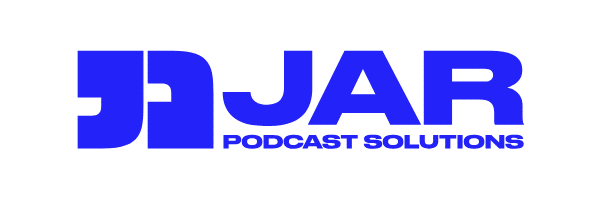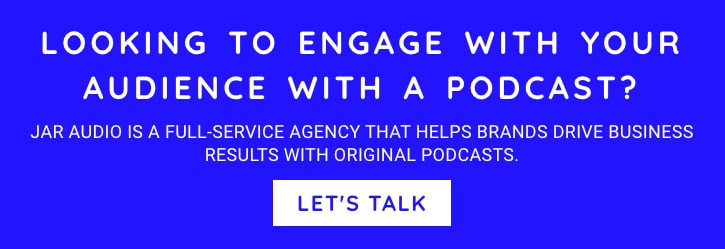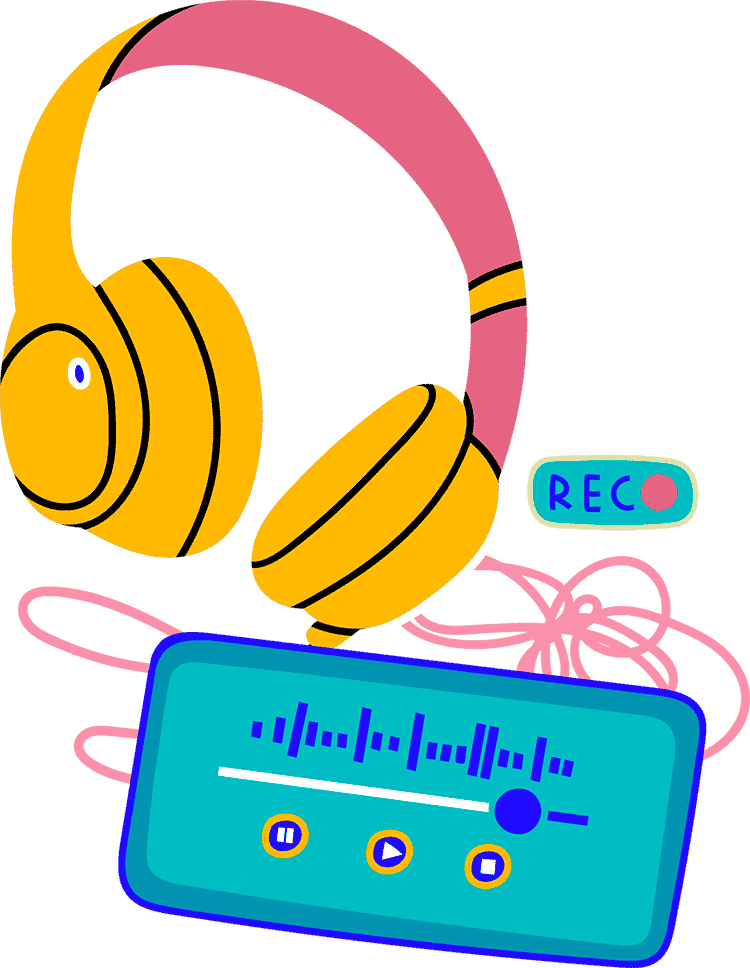Why great branded podcasts start long before the mic is on.
If your branded podcast strategy begins when the mic and camera turn on, you’re already behind. Way behind.
Because great shows — the ones that drive real business results — don’t start with a script. They start with a stack of questions. A research phase that’s equal parts audience obsession, competitor analysis, and content hypothesis testing.
At JAR Audio, we’ve worked with some of the biggest brands in the world — Amazon, RBC, The Wharton School, Cirque du Soleil — and the most successful podcasts we’ve helped create all had one thing in common: they did their homework before saying a word.
And that’s why we exclusively hire journalists as producers. They live and breathe research. They know how to chase clarity, spot red flags, and back up every claim with a source. That journalistic instinct is the backbone of our production process — and the reason our shows stand up to scrutiny.
Branded podcasting is not winging it
Too often, companies confuse a podcast recording with a podcast strategy. The result? Unfocused, low-impact content that sounds like every other industry show. You hear it and think, “Haven’t I heard this before?”
That’s because you have.
Skipping the research phase leads to:
- Generic interviews with no editorial spine
- Flat episodes that don’t map to business goals
- Low engagement from target audiences
- Missed SEO and distribution opportunities
We’ve seen it first-hand. A client once approached us with a half-launched show that featured fascinating guests — but it wasn’t gaining traction. Why? No research. No POV. No clarity on the job the podcast was meant to do. We rebuilt it from the ground up using JAR’s research-first framework and within six months, it became a top performer in their content ecosystem.
Podcast research: The quiet superpower
So what does podcast research actually look like when done right?
Here’s the behind-the-scenes work we do at JAR before an episode is ever recorded:
1. Audience insight gathering
We go deep — far beyond demographics. We analyze listening habits, buying triggers, community behaviors, and what’s driving audience attention right now. According to Edison Research, 65% of podcast listeners say they feel more connected to a brand after hearing it on a show. That connection doesn’t happen by chance, it happens by understanding what matters to them.
When we developed Infernal Communication for Staffbase, we spoke to internal communications professionals to understand their real frustrations and untold stories — so we could build a show that felt like it was made for them, not just about them.
And when producing The Sound Bath for Lush, we didn’t assume what their audience wanted — we asked. We turned to their social audience to help us shape the editorial direction, ensuring that the topics we covered would resonate with the values and curiosities of their loyal fans.
2. Competitor and content gap analysis
We don’t just listen to other shows. We dissect them. What’s working? What’s overdone? Where is there whitespace for your brand to own a fresh narrative? This is content strategy 101 — and essential for standing out in saturated B2B verticals.
3. Framing episodes around business objectives
Not every podcast needs to sell. But every podcast needs a purpose. Whether it’s increasing qualified leads, supporting pipeline velocity, or shifting brand perception — every episode is planned around measurable outcomes.
4. SME interviews and pre-interview prep
We treat guest prep like journalists. Because great stories don’t surface from a cold start. We research our subject matter experts, pull stories from their work, and develop sharp, business-relevant episode angles that connect the dots for the audience.
And while we never script our interviews — we believe in keeping the conversation natural and real — we always arm our hosts with a stack of smart, informed questions and a clear roadmap. That way, the story can breathe, but it never loses its way.
And most importantly? Research ensures your facts are accurate. Because the worst-case scenario isn’t boring content. It’s content that’s wrong. That’s how trust is lost — and trust is everything.
From podcast research to ROI
Want to grow your audience? Start by giving them a reason to care.
Want to convert listeners to advocates? Start by proving you understand their world.
When we developed Nice Genes! for Genome BC, we didn’t just make a science podcast. We made a cultural storytelling platform rooted in Canadian curiosity, framed around what listeners actually wanted to learn—not just what the organization wanted to say. The result? A dramatic increase in listener engagement and inbound interest from media partners.
According to Nielsen, podcasts are 4.4x more effective at brand recall than display ads. But that impact only materializes when the content is planned with precision — not winged.
Build it backwards
Here’s our advice to any senior marketer planning a branded podcast: start with the end in mind.
Don’t begin with “What should we talk about?”
Begin with “What shift are we trying to create in our audience?”
And let your research answer the rest.
One more thing…
If this resonates, check out our post on How to Build a Podcast Content Strategy That Performs for a deeper dive into aligning podcasting with business goals.
And if you’re serious about turning branded audio into a performance channel, you’ll want to subscribe to JAR’s Newsletter — we share insights like this, every month, in your inbox.
Roger transitioned from a 22 year career in advertising account management to co-founding JAR, a podcast podcast production agency. As CEO of JAR, he propels the company’s growth by prioritizing audience engagement and podcast marketing. Under his guidance, JAR flourishes with a global clientele, aiming to broaden its reach across North America and revolutionize brand connections through immersive storytelling.
Related Posts
- Creating Engaging Podcasts: How to Stand Out in a Crowded Market
- Carving Branded Podcast Success: Launch Your Show Without Wiping Out
- Are Podcasts Good for Business? Tackling Business Challenges With Podcasts: A Comprehensive Guide
- Mastering Podcast Audio: Why Great Sound Is the Unsung Hero of Effective B2B Content Strategy



